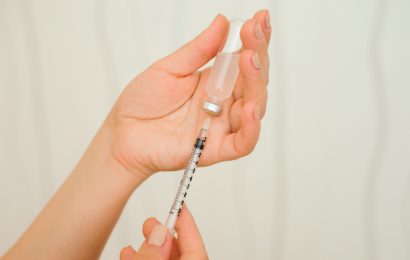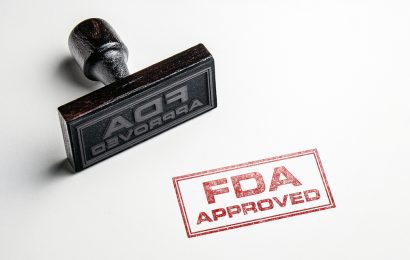MiniMed® 670G System, courtesy of Medtronic.
On September 28, the U.S. Food and Drug Administration (FDA) approved the world’s first “artificial pancreas,” Medtronic’s MiniMed 670G hybrid closed loop system, for people 14 years of age and older with Type 1 diabetes.
In a person without diabetes, the pancreas continuously releases a low amount of background, or basal, insulin to keep blood sugar levels under control. In those with Type 1 diabetes, the insulin-producing beta cells of the pancreas have been destroyed by an autoimmune reaction and no longer produce insulin. The MiniMed 670G is intended to automatically monitor blood sugar levels and provide appropriate basal doses of insulin with little or no input from the user.
Using the Guardian Sensor 3, a small sensor inserted under the skin for seven days at a time, the device measures glucose levels every five minutes and transmits these values via the Guardian Link 3 transmitter to the MiniMed 670G insulin pump. When in Auto Mode, the pump then automatically withholds or delivers insulin aiming for a blood sugar target of 120 mg/dl. For those who prefer not to use the system on Auto Mode, the Suspend On Low feature stops insulin delivery for up to two hours when blood sugar levels reach a preset low, and the Suspend Before Low feature stops insulin delivery when blood sugar levels are predicted to reach a low limit.
Using the device on Auto Mode, users need only to enter carbohydrate content when eating, accept bolus correction recommendations, and calibrate the sensor with conventional blood sugar readings at least every 12 hours.
“This first-of-its-kind technology can provide people with Type 1 diabetes greater freedom to live their lives without having to consistently and manually monitor baseline glucose levels and administer insulin,” says Jeffrey Shuren, MD, JD, director of the FDA’s Center for Devices and Radiological Health.
The FDA reviewed data from a clinical trial of the device that included 123 people with Type 1 diabetes using the system’s hybrid closed loop feature as often as possible for three months. No instances of serious adverse events, diabetic ketoacidosis (DKA), or severe hypoglycemia (low blood sugar levels) were reported.
Medtronic is performing studies to determine the safety and effectiveness of the MiniMed 670G in children with diabetes ages 7–13 years old. The device is not safe for use in children ages 6 years or under or in people who need fewer than 8 units of insulin per day.
The system is expected to become available in the spring of 2017. Those who purchase a MiniMed 630G system between August 11, 2016, and when the MiniMed 670G system begins to ship will be eligible to upgrade to the new device for $299. Those who purchase the MiniMed 630G system between now and December 31, 2016, and participate in an approved System Access program may be able to pay $0 to upgrade. Additional pricing information will become available closer to the launch date of the system.
For more information, see the press releases on the Medtronic and FDA websites. And for information about getting priority access to the MiniMed 670G system, visit the official product page.





